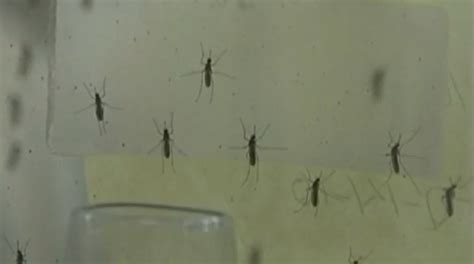
Some people are mosquito magnets, and scientists now believe a key factor is their unique scent profile—a combination of body odor, breath, and sweat—making them irresistible to the biting insects.
A complex interplay of genetic factors, skin bacteria, and even diet contributes to the specific chemical cocktail emanating from each individual, influencing a mosquito’s likelihood of landing and biting. Recent research sheds light on the specific compounds that attract mosquitoes, offering potential avenues for developing more effective repellents and personalized protection strategies.
The Allure of Your Personal Scent
While many believe factors like wearing dark clothing or having “sweet blood” attract mosquitoes, the reality is far more nuanced. It’s the unique blend of chemicals your body naturally produces that determines your attractiveness to these pests. “Mosquitoes are attracted to a combination of factors, including carbon dioxide, body odor, and heat,” explains Dr. Leslie Vosshall, a neurobiologist at Rockefeller University, in a related study. The concentration of carbon dioxide you exhale, largely determined by your metabolic rate, is a primary long-range attractant. However, once mosquitoes are in closer proximity, your scent profile takes center stage.
Key Chemical Culprits
Several compounds have been identified as particularly attractive to mosquitoes. These include lactic acid, ammonia, certain fatty acids, and, notably, carboxylic acids. These substances are produced by bacteria living on our skin and released in our sweat. “The composition of your skin microbiome – the mix of bacteria that live on your skin – plays a significant role in determining your attractiveness to mosquitoes,” notes a study published in PLOS Pathogens. Individuals with a greater abundance of certain types of bacteria, particularly those that produce high levels of these attractive chemicals, tend to be bitten more frequently.
Another significant factor is the genetic component influencing the production of these compounds. Studies have shown that identical twins are more likely to share similar levels of attractiveness to mosquitoes than fraternal twins, suggesting a strong hereditary influence. This genetic predisposition dictates the types and amounts of chemicals your body produces, setting the stage for your individual scent profile.
Beyond the Basics: Factors Influencing Your Scent Profile
While genetics and skin bacteria are major players, other factors can also influence your attractiveness to mosquitoes. These include:
- Diet: Some studies suggest that certain foods and beverages, such as beer, can increase mosquito attraction. This may be due to changes in body odor or an increase in carbon dioxide exhalation.
- Exercise: Physical activity elevates body temperature and increases the production of lactic acid, both of which attract mosquitoes. Increased breathing rate during exercise also leads to a higher output of carbon dioxide.
- Pregnancy: Pregnant women exhale more carbon dioxide than non-pregnant women and have a slightly higher body temperature, making them particularly attractive to mosquitoes. Studies have also shown that pregnant women produce higher levels of certain volatile organic compounds that attract mosquitoes.
- Blood Type: While the evidence is less conclusive, some studies indicate that people with Type O blood may be bitten more often than those with other blood types. This is thought to be related to specific antigens present in their saliva, which mosquitoes can detect.
The Role of Carboxylic Acids
A groundbreaking study published in the journal Cell highlighted the significant role of carboxylic acids in attracting mosquitoes. Researchers found that individuals with high levels of these acids on their skin were significantly more attractive to mosquitoes than those with lower levels. Carboxylic acids are produced by bacteria on the skin and contribute to the complex scent profile that mosquitoes use to identify their targets.
The study involved analyzing the skin odors of numerous participants and correlating them with their attractiveness to mosquitoes. The results revealed a strong correlation between the abundance of carboxylic acids and mosquito attraction. “We found that individuals who were highly attractive to mosquitoes produced significantly higher levels of carboxylic acids on their skin,” stated Dr. Vosshall, the lead author of the study.
This discovery provides a crucial insight into the mechanisms underlying mosquito attraction and opens up new possibilities for developing more effective repellents. By targeting the production or detection of carboxylic acids, researchers hope to create innovative strategies to protect people from mosquito bites.
Implications for Repellent Development
The understanding of the chemical compounds that attract mosquitoes has significant implications for the development of more effective repellents. Traditional repellents, such as DEET, work by masking human scent or interfering with mosquitoes’ ability to detect it. However, these repellents are not always effective and can have potential side effects.
New research is focusing on developing repellents that specifically target the key attractants identified in recent studies. This could involve creating compounds that block the detection of carboxylic acids or other attractive chemicals, or developing probiotic treatments that alter the composition of the skin microbiome to reduce the production of these compounds.
“By understanding the specific chemicals that attract mosquitoes, we can develop more targeted and effective repellents that minimize the use of potentially harmful chemicals,” explains Dr. Anandasankar Ray, a professor of entomology at the University of California, Riverside.
Personalized Protection Strategies
In addition to developing new repellents, the understanding of individual scent profiles could lead to personalized protection strategies. This could involve analyzing an individual’s skin chemistry to determine their level of attractiveness to mosquitoes and then tailoring repellent recommendations accordingly.
For example, individuals who produce high levels of carboxylic acids may benefit from using repellents that specifically target these compounds. They may also benefit from washing more frequently with antibacterial soaps to reduce the abundance of bacteria on their skin.
“The future of mosquito protection may involve personalized strategies that take into account an individual’s unique scent profile,” says Dr. Vosshall. “This could lead to more effective and targeted protection against mosquito bites.”
Beyond the Bite: Disease Transmission
The implications of mosquito attraction extend beyond mere annoyance. Mosquitoes are vectors for numerous diseases, including malaria, Zika virus, dengue fever, and West Nile virus. Understanding why some individuals are bitten more frequently than others could help to reduce the transmission of these diseases.
By identifying and protecting those who are most attractive to mosquitoes, public health officials can potentially reduce the overall burden of mosquito-borne illnesses. This could involve providing targeted repellent interventions, improving mosquito control measures in high-risk areas, and developing vaccines and treatments for these diseases.
Ongoing Research and Future Directions
Research into mosquito attraction is ongoing, with scientists continuing to investigate the complex interplay of factors that determine an individual’s attractiveness to these pests. Future research will likely focus on:
- Identifying additional chemical compounds that attract mosquitoes.
- Investigating the role of genetics in determining scent profiles.
- Developing new and more effective repellents.
- Exploring personalized protection strategies.
- Understanding the impact of mosquito attraction on disease transmission.
By continuing to unravel the mysteries of mosquito attraction, scientists hope to develop innovative strategies to protect people from mosquito bites and reduce the burden of mosquito-borne illnesses.
Living with Mosquitoes: Practical Tips for Reducing Your Attractiveness
While scientific advancements offer hope for future solutions, several practical steps can be taken today to minimize your attractiveness to mosquitoes:
- Use Repellent: Apply insect repellent containing DEET, picaridin, IR3535, or oil of lemon eucalyptus (OLE) according to label instructions. Reapply as needed, especially after sweating or swimming.
- Wear Protective Clothing: Cover as much skin as possible with long sleeves, pants, and socks, especially during peak mosquito activity times (dawn and dusk).
- Avoid Scented Products: Perfumes, colognes, and heavily scented lotions can attract mosquitoes. Opt for unscented products when possible.
- Stay Hydrated: While dehydration itself doesn’t directly attract mosquitoes, it can affect your body temperature and potentially alter your scent profile. Staying hydrated helps maintain optimal bodily functions.
- Limit Outdoor Activity During Peak Hours: Mosquitoes are most active at dawn and dusk. If possible, limit your time outdoors during these hours.
- Control Mosquito Breeding Grounds: Eliminate standing water around your home, such as in flower pots, gutters, and old tires. This will help reduce the mosquito population in your area.
- Use Mosquito Netting: When sleeping outdoors or in areas with high mosquito populations, use mosquito netting to protect yourself from bites.
- Consider Fan Use: Mosquitoes are weak fliers, and a fan can make it difficult for them to reach you.
- Shower Regularly: Showering regularly helps to remove sweat, bacteria, and other substances that attract mosquitoes.
- Modify Your Diet: While more research is needed, some anecdotal evidence suggests that certain foods, such as garlic, may repel mosquitoes. However, the effect is likely minimal.
By combining these practical tips with ongoing scientific advancements, individuals can take steps to reduce their attractiveness to mosquitoes and protect themselves from bites and mosquito-borne illnesses.
Expert Opinion:
Dr. Anandasankar Ray, a professor of entomology at the University of California, Riverside, emphasizes the complexity of mosquito attraction: “It’s a multi-factorial process. While carboxylic acids are a significant piece of the puzzle, other factors, such as carbon dioxide, body temperature, and humidity, also play important roles.” He advises individuals to adopt a multi-pronged approach to mosquito protection, including using repellent, wearing protective clothing, and eliminating standing water.
Dr. Vosshall’s research group continues to explore the intricate details of mosquito behavior and attraction. Their findings pave the way for innovative solutions to mitigate the impact of these persistent pests on human health and well-being. The future holds promise for personalized protection strategies and more effective repellents, ultimately leading to a world with fewer mosquito bites and a reduced risk of mosquito-borne diseases.
Conclusion
The notion that some individuals are simply “mosquito magnets” is rooted in scientific reality. The unique combination of chemicals produced by our bodies, influenced by genetics, skin bacteria, diet, and other factors, creates a scent profile that either attracts or repels mosquitoes. Understanding these complex mechanisms is crucial for developing more effective repellents, personalized protection strategies, and ultimately, for reducing the transmission of mosquito-borne diseases. By staying informed about the latest research and adopting practical preventative measures, individuals can take proactive steps to minimize their attractiveness to mosquitoes and enjoy a more bite-free existence.
Frequently Asked Questions (FAQ)
1. Why are some people bitten by mosquitoes more than others?
Some individuals produce a unique scent profile, a complex combination of body odor, breath, and sweat, that is highly attractive to mosquitoes. This scent profile is influenced by factors such as genetics, skin bacteria, diet, and metabolic rate. Certain chemical compounds, particularly carboxylic acids, have been identified as key attractants. People with a higher abundance of these compounds on their skin tend to be bitten more frequently.
2. What role does genetics play in mosquito attraction?
Genetics plays a significant role in determining an individual’s attractiveness to mosquitoes. Studies have shown that identical twins are more likely to share similar levels of attractiveness to mosquitoes than fraternal twins, suggesting a strong hereditary influence. This genetic predisposition dictates the types and amounts of chemicals your body produces, setting the stage for your individual scent profile.
3. Can diet and lifestyle affect how attractive I am to mosquitoes?
Yes, diet and lifestyle can influence your attractiveness to mosquitoes. Some studies suggest that certain foods and beverages, such as beer, can increase mosquito attraction. Physical activity elevates body temperature and increases the production of lactic acid, both of which attract mosquitoes. Pregnancy also increases mosquito attraction due to higher carbon dioxide exhalation and slightly elevated body temperature.
4. What are carboxylic acids, and why are they important in mosquito attraction?
Carboxylic acids are a group of organic compounds produced by bacteria on the skin. Research has shown that individuals with high levels of these acids on their skin are significantly more attractive to mosquitoes than those with lower levels. Carboxylic acids contribute to the complex scent profile that mosquitoes use to identify their targets. Targeting the production or detection of carboxylic acids is a promising avenue for developing more effective repellents.
5. What can I do to reduce my attractiveness to mosquitoes?
Several practical steps can be taken to minimize your attractiveness to mosquitoes, including:
- Use insect repellent containing DEET, picaridin, IR3535, or oil of lemon eucalyptus (OLE).
- Wear protective clothing, such as long sleeves and pants.
- Avoid scented products, such as perfumes and colognes.
- Limit outdoor activity during peak mosquito activity times (dawn and dusk).
- Eliminate standing water around your home to control mosquito breeding.
- Consider using a fan, as mosquitoes are weak fliers.
- Shower regularly to remove sweat and bacteria.









